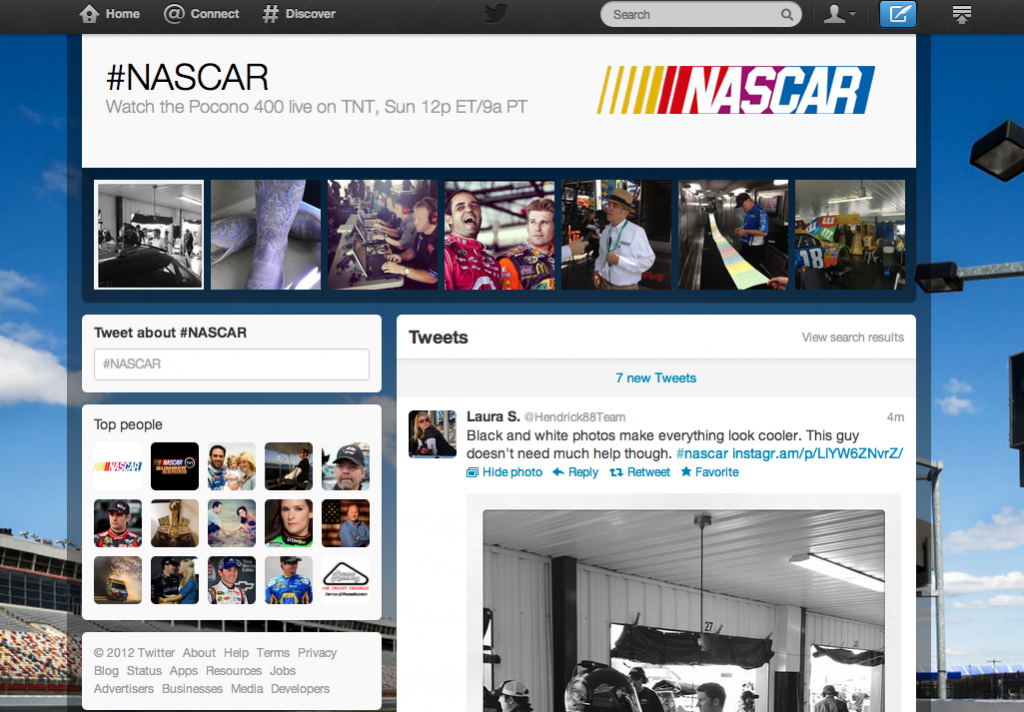Over at GigaOm Mathew Ingram is doing some excellent reporting on the evolution of Twitter. Twitter is evolving from a sort of free informational utility to a media company that uses other people’s content to sell advertising and drive eyeballs to other media partners.
The company is adding features like expanded tweets and providing curated editorial products for NASCAR (above) and NBC Universal. It’s cutting off API access to companies like LinkedIn, Instagram and most recently Tumblr. Twitter wants to more fully control the platform, the content and the user experience.
How you feel about these changes depends on your perspective. Advertisers are no doubt pleased. Developers of apps that depend on access to the Twitter API, probably not so much. As Ingram points out, the only opinion that really matters is that of the users. They (we) are creating the content that is the foundation of Twitter’s advertising model.
Why do we do it? Twitter offers a lot of utility at no cost to the user. It can be a distribution channel, a research channel and a personalized news channel. I enjoy using Twitter personally, and I counsel my clients on how to leverage it to further their business goals.
Twitter is a very prominent example of what I like to call the (largely) unspoken quid pro quo online. Users get cool, free tools in exchange for sharing personal information. The companies that offer the most popular tools are given huge amounts of consumer data, which they eventually attempt to monetize.
Which is exactly what Twitter is doing. It will need to balance the amount of advertising presented to users so it doesn’t damage the experience, as all media companies do. But unlike any other media companies, Twitter’s users are also the “talent,” creating all the content that Twitter curates, analyzes and puts at the disposal of advertisers. Never before have the terms “the customer is king” and “it’s all about the content” been so intertwined.
Many of the features that have made Twitter so popular were developed because of the company’s open API. The challenge will be for the company to continue to develop new products and services that excite users, as well as advertisers. If the quid pro quo becomes less attractive and we stop sharing, the company fails.
